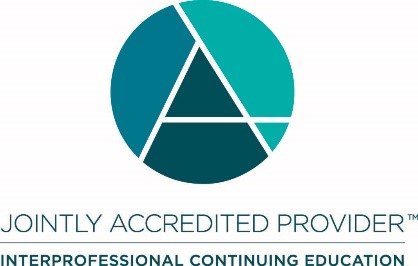Management of Cardiac Complications in Hematologic Malignancies
Cardiac involvement in hematologic malignancies may stem from the disease process or systemic therapy regimen. Chemotherapy-related cardiotoxicity was historically classified into Type I and Type II, irreversible and reversible cardiac dysfunction, respectively. Modern anti-cancer therapies have expanded this classification system and complications continue to come to light. Continued education for oncology care providers is necessary to promote awareness of the cardiac effects of hematologic malignancies and their treatment so that effective methods of management may be implemented.
This information was originally presented at the NCCN 2020 Virtual Nursing Forum: Advancing Oncology Nursing in Hematologic Malignancies™ held on October 8, 2020.
Target Audience
This educational program is designed to meet the educational needs of hematology/oncology nurses and nurse practitioners who manage patients with hematologic malignancies.
Learning Objectives
Following this activity, participants should be able to:
- Outline the key features of at least three cardiac toxicities pertinent to practice with patients having hematologic malignancies.
- Describe methods of minimizing the risk for cardiotoxicity with patients having hematologic malignancies.
- In a given case scenario of an individual at risk or experiencing potential cardiac toxicities, define the priority interventions.
Brenda Shelton, DNP, APRN-CNS, CCRN, AOCN
The Sidney Kimmel Comprehensive Cancer Center at Johns Hopkins
NCCN Medical Education Disclosure Policy
It is the policy of NCCN that every 12 months, all faculty, moderators, activity planners and all internal planning staff participating in NCCN continuing education activities are expected to disclose any financial relationships with a commercial interest as defined by the Accreditation Council for Continuing Medical Education (ACCME) Standards for Commercial Support. In addition, all faculty presentations have been reviewed for adherence to the ACCME’s Standards for Commercial Support (the provider develops activities/educational interventions independent of commercial interests [SCS 1, 2 and 6] by experts on the topics).
Per the ACCME Standards for Commercial Support, individuals who do not disclose relevant financial relationships will be disqualified from involvement in the CE activity as a content developer, planner, or presenter. A complete list of individuals’ relationships with external entities is available upon request.
Definitions
NCCN continuing education considers financial relationships to create a “conflict of interest” when an individual has both a financial relationship with a commercial interest and the opportunity to affect CE content about the products or services of a commercial interest with which he/she and/or a spouse or partner has a financial relationship.
NCCN continuing education considers “relevant financial relationships” as financial relationships in any amount occurring within the past 12 months that create a conflict of interest. NCCN does not set a minimal dollar amount for relationships to be significant. Inherent in any amount is the incentive to maintain or increase the value of the relationship.
Faculty Disclaimers
All faculty for this continuing education activity are competent in the subject matter and qualified by experience, training, and/or preparation for the tasks and methods of delivery.
Faculty presentations may include discussion of off-label use. Faculty will disclose that the use in question is not currently approved by the FDA per the product labeling.
Faculty Disclosures
The faculty listed below discloses no relevant financial relationships:
Brenda Shelton, DNP, APRN-CNS, CCRN, AOCN
NCCN Staff Disclosures
The NCCN Activity Planning staff listed below discloses no relevant financial relationships:
Michael Abrams; Melissa Esplen; Mark A. Geisler; Kristina M. Gregory, RN, MSN, OCN; Kristin Kline Hasson; Rose Joyce; Karen Kanefield; Lisa Perfidio, MS; Shannon Ryan, CMP; Kathy Ann Smith, CHCP; Sarah Weinstein
The NCCN Leadership listed below discloses no relevant financial relationships:
Robert W. Carlson, MD; Gary J. Weyhmuller, MBA, SPHR
The NCCN Leadership listed below discloses the following relevant financial relationships:
Wui-Jin Koh, MD: IBM Watson Health for Oncology and Genomics; Scientific Advisor
The NCCN Clinical staff listed below discloses no relevant financial relationships:
Giby V. George, MD

In support of improving patient care, National Comprehensive Cancer Network (NCCN) is jointly accredited by the Accreditation Council for Continuing Medical Education (ACCME), the Accreditation Council for Pharmacy Education (ACPE), and the American Nurse Credentialing Center (ANCC), to provide continuing education for the healthcare team.
Nurses
NCCN designates this educational activity for a maximum of 0.75 contact hours.
Available Credit
- 0.75 ANCC contact hours
- 0.75 Participation
Required Hardware/software
To complete this activity, users will need:
- A device with an Internet connection
- One of the two latest versions of Google Chrome, Mozilla Firefox, or Safari (Internet Explorer is no longer supported)
- Adobe Flash Player and/or an HTML5 capable browser for video or audio playback
- Adobe Reader or other PDF reader software for certificate viewing/printing

 Facebook
Facebook X
X LinkedIn
LinkedIn Forward
Forward